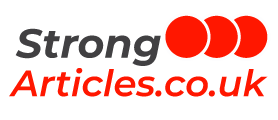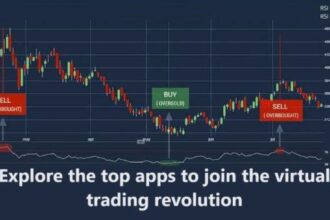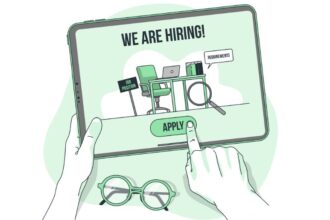Mastering Interviews with Pro Tips for Job Seekers
In the competitive landscape of job hunting, an interview is the crucial bridge between your resume and the coveted position. Any talent acquisition strategy interview stage is essential to figuring out whether a candidate is a good fit for the job. It takes skill, planning, and a clear awareness of the dos and don’ts that can make or break your chances to properly navigate this bridge. This thorough approach will assist you in making a good first impression in interviews.
The Dos
Here are a few tips that are sure to land you your dream job:
Research the Company
Before you step into the interview room, arm yourself with knowledge about the company. Understand its values, mission, and recent accomplishments. This information not only showcases your genuine interest but also allows you to tailor your responses to align with the company’s goals.
Punctuality is Key
Arriving late to an interview is a red flag for employers. Punctuality reflects your respect for others’ time and your commitment to the opportunity. Plan your journey in advance, accounting for potential delays, and aim to arrive at least 10-15 minutes early.
Dress Appropriately
First impressions matter, and your attire plays a significant role. Choose professional and polished attire that aligns with the company culture. Being a little overdressed is always preferable to being underdressed. Pay attention to grooming, as a well-groomed appearance reflects your attention to detail.
Practice Common Interview Questions
Anticipate the questions you might be asked and rehearse your responses. Common questions like “Tell me about yourself”, “Why should we hire you?”, and “What are your strengths and weaknesses?”, should be answered with clarity and confidence. Practice with a friend or in front of a mirror to refine your delivery.
Showcase Your Achievements
Employers want to know how you can contribute to their organization. Highlight your achievements, backed by specific examples, to demonstrate your value. Discuss challenges you’ve overcome and quantify your success whenever possible. This not only illustrates your capabilities but also adds substance to your responses.
Ask Thoughtful Questions
An interview is a two-way street. Show your interest in the company and the position by asking thoughtful questions. Inquire about the team dynamics, expectations for the role, and the company’s vision for the future. This demonstrates that you’re well-equipped with research and are genuinely invested in the opportunity.
Follow Up with a Thank-You Email
After the interview, send a personalized thank-you email expressing your gratitude for the opportunity. Mention specific points from the interview that reinforced your interest in the position. This small gesture reinforces your professionalism and leaves a positive impression.
Be Mindful of Non-Verbal Cues
Communication extends beyond words. Keep eye contact, be mindful of your body language, and extend a firm handshake. Nonverbal cues can improve your presentation by expressing professionalism, zeal, and confidence.
Adaptability and Flexibility
Demonstrate your adaptability by being open to new ideas and showcasing your ability to learn quickly. Flexibility is a valuable trait in today’s dynamic work environment, and employers appreciate candidates who can navigate change with ease.
The Don’ts
Below are a few pointers that should be avoided at all costs for a successful interview:
Don’t Arrive Unprepared
Failing to prepare is preparing to fail. Arriving at an interview without knowledge about the company, its industry, and the role you’re applying for reflects poorly on your commitment and interest. Research thoroughly to showcase your dedication to the opportunity.
Avoid Being Overly Familiar
Maintain a professional demeanor throughout the interview. While it’s essential to be personable, avoid oversharing personal information or being too casual. Remember, you’re not chatting with a friend but presenting yourself as a qualified candidate for the position.
Don’t Speak Ill of Previous Employers
Regardless of your previous work experiences, refrain from speaking negatively about former employers or colleagues. Focus on the positive aspects of your previous roles and what you’ve learned from them. Employers appreciate candidates who can handle workplace challenges with diplomacy.
Avoid Rambling or Over-Talking
Effective communication is concise and to the point. Avoid rambling or over-talking, as it can dilute the impact of your responses. Practice articulating your thoughts clearly and succinctly to ensure your message is delivered effectively.
Steer Clear of Unpreparedness for Behavioral Questions
Behavioral questions probe into your past experiences and actions. Failing to prepare for these questions can leave you struggling to provide relevant examples. Use the STAR (Situation, Task, Action, Result) method to structure your responses and showcase your problem-solving abilities.
Don’t Neglect Professionalism in Communication
From your initial contact with the company to the follow-up after the interview, maintain a high level of professionalism in your communication. Use proper language, check your emails for errors, and ensure that your tone is respectful and courteous at all times.
Avoid Interrupting the Interviewer
Active listening is a crucial skill. Avoid interrupting the interviewer and allow them to finish their questions before responding. This not only demonstrates respect but also ensures that you understand the full context of the question.
Conclusion
Mastering the art of interviews requires a combination of preparation, professionalism, and effective communication. By adhering to these dos and don’ts, you’ll position yourself as a standout candidate and increase your chances of securing that coveted job offer, whether recruited through any staffing agency in Pittsburgh or directly by a company. Remember, an interview is not just an evaluation of your skills, but also an opportunity for you to assess if the company aligns with your career goals and values.




